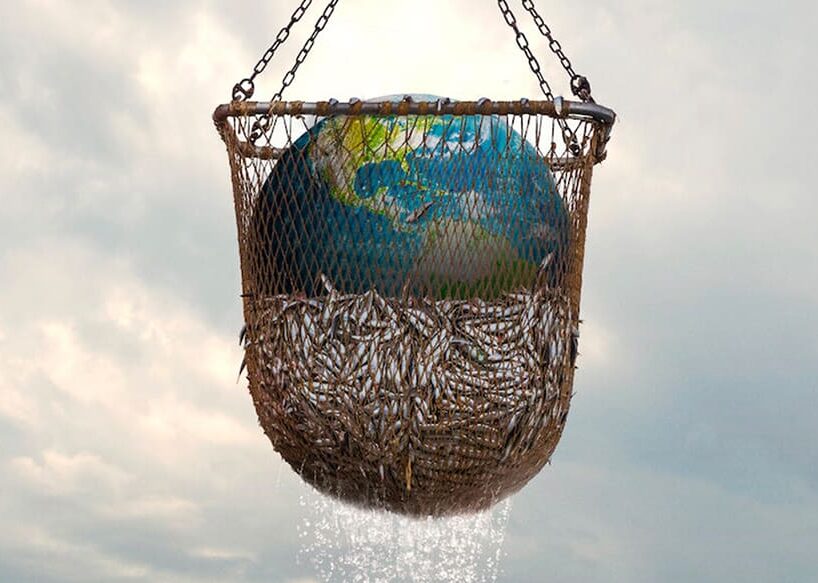What Seaspiracy Got Right, And What It Missed
NewsThe realities of the global industrial fishing operations depicted in this documentary are sadly not surprising to us. They are exactly why Sonia and Shaun started Skipper Otto in the first place!

There’s been a lot of talk about Seaspiracy, a new Netflix documentary, where stories behind the industrial fishing industry are exposed. A few members have reached out to us to voice their concerns about Seaspiracy, and we totally understand – the Skipper Otto team was also disturbed by the film! The truth is, the realities of the global industrial fishing operations depicted in this documentary are sadly not at all surprising to us. The harsh truths of modern-day slavery, unfathomable bycatch levels, drift nets, and harmful government subsidies are all issues we’ve been talking about for decades.
I want to start off by saying that if the only seafood option available was a product of this devastating, global industrial system, then I would also stop eating seafood! But it’s really important to make the distinction between factory vessels in international waters and small-scale, in-shore fishing like what our Skipper Otto fishing families do. Lumping small-scale coastal fishing together with industrial-scale fishing would be like comparing horse-logging a woodlot to industrial deforestation!
The documentary shows some horrifying footage of bycatch being caught on a massive shrimp trawler, then being tossed overboard. On vessels like these, for every 1lb of shrimp harvested, 6lbs of bycatch are also caught. The filmmaker’s criticism for bottom trawling and “death nets” is totally valid – this is the reality on factory boats, designed to extract as much from our oceans as possible, exploiting people and the planet in the name of profits. But this isn’t the case with small-scale, regenerative fisheries where gear methods are extremely targeted, and as a result, bycatch levels are extremely low.
Another issue that gets brought to light is the plastic pollution created by lost fishing gear. We’ve seen other documentaries like Patagonia’s ‘Ghost Nets,’ and the impacts of this type of pollution are far-reaching and highly destructive. But it’s important to remember that these are once again issues created by massive-scale industrial fishing operations, not small-scale fishing families. In industrial fishing, massive gear is often dragged along the seafloor or left anchored for days or weeks with the intention to return later to harvest whatever has become ensnared. By contrast, gillnets and trolling lines used in BC by our fishermen are never left unattended, and are pulled back on board every 20 to 90 minutes. Fishing gear is a really big investment for fishing families, so losing a net can end a season! In Otto’s 50 years fishing, he never lost a single net – it’s just not in a fisherman’s interest, for environmental or financial reasons. Anytime gear gets entangled or damaged, fishing comes to an immediate halt, someone grabs the gaff (a pole with a hook on the end), and everything is pulled aboard to be repaired later on shore. If you’ve ever come to False Creek Fishermen’s Wharf in Vancouver during the fishing season, you may have seen fishermen spending hours meticulously repairing their expensive nets and traps so that they can be used season after season. And truth be told, small-scale fishermen pull in far more plastic and trash from the oceans each day when they are out at sea than they will ever leave behind.
All this to say, the biggest truths exposed in Seaspiracy are exactly why Sonia and Shaun started Skipper Otto in the first place: the global seafood system is dirty, and there is a serious lack of transparency. It’s extremely difficult to know exactly what you’re supporting when you buy fish with a murky history – let alone trust that you’re actually buying the species that the label claims it to be!
We think knowing your fisherman, knowing the gear methods they employed to bring you their catch, and even where and when they caught it, are all details you have the right to know when deciding if you want seafood to be part of your diet. In cases where these details are absent, we would question buying it. This is why we stand for total transparency behind the seafood our fishing families catch for you. And if Seaspiracy can help expose the massive corruption, social injustice, and environmental destruction in the global seafood industry, then that’s a good thing.
Want to be a part of a seafood system that works for fishing families, consumers, and the environment? Join our Community Supported Fishery!
